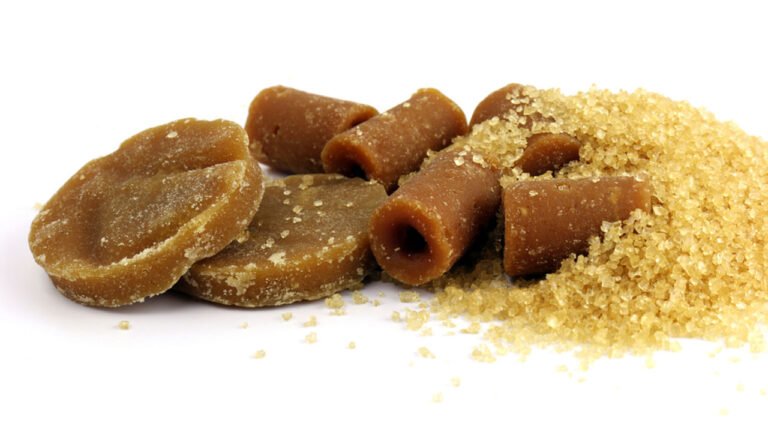As people become more health-conscious, there is a growing interest in natural and unprocessed foods. Jaggery, an ancient sweetener, is now considered a healthier alternative to refined sugar. With rising awareness of lifestyle diseases like diabetes and obesity, many are turning to jaggery instead of sugar. Both jaggery and sugar are common sweeteners, but they differ significantly in nutritional content and health benefits. Though both are derived from sugarcane or date palm sap, jaggery undergoes minimal processing, making it a more natural and nutrient-rich option compared to refined sugar.
Jaggery is Rich in Iron
Due to its minimal processing, jaggery retains essential nutrients like iron, magnesium, potassium, and calcium. This makes jaggery a much better source of micronutrients compared to sugar. Known for its rich antioxidant properties, jaggery boosts the immune system, helping the body fight infections. Consuming jaggery after meals stimulates digestive enzymes, easing digestion and preventing constipation. Additionally, the potassium and sodium in jaggery help maintain electrolyte balance and regulate blood pressure.
Drawbacks of Jaggery
Despite its nutritional benefits, jaggery is high in calories, and excessive consumption can lead to weight gain. Even in smaller amounts, jaggery can cause fluctuations in blood sugar levels, so people with diabetes should consume it in moderation. If not processed correctly, traditional methods of jaggery production can sometimes lead to contamination.
Refined Sugar
Refined sugar undergoes extensive processing, stripping it of all vitamins and minerals. It provides no essential nutrients and only adds to calorie intake, leading to weight gain. Excessive use of refined sugar can result in insulin resistance, a major cause of type 2 diabetes. It also causes rapid spikes in blood sugar, followed by crashes that lead to fatigue and increased hunger.
Slight Difference in GI Between Jaggery and Sugar
Refined sugar has a glycemic index (GI) of around 65, while jaggery has a slightly lower GI of 50-55. Though jaggery is somewhat better in terms of blood sugar level increases, it should still be consumed in moderation, particularly for people with diabetes. The GI measures how quickly a food raises blood sugar levels.
Moderation is Key
In terms of nutritional and health benefits, jaggery is certainly a healthier option than refined sugar. However, it should still be consumed in moderation, as both sweeteners contribute to calorie intake and can affect blood sugar levels. Natural sweeteners like honey, dates, or stevia can also be excellent alternatives.



